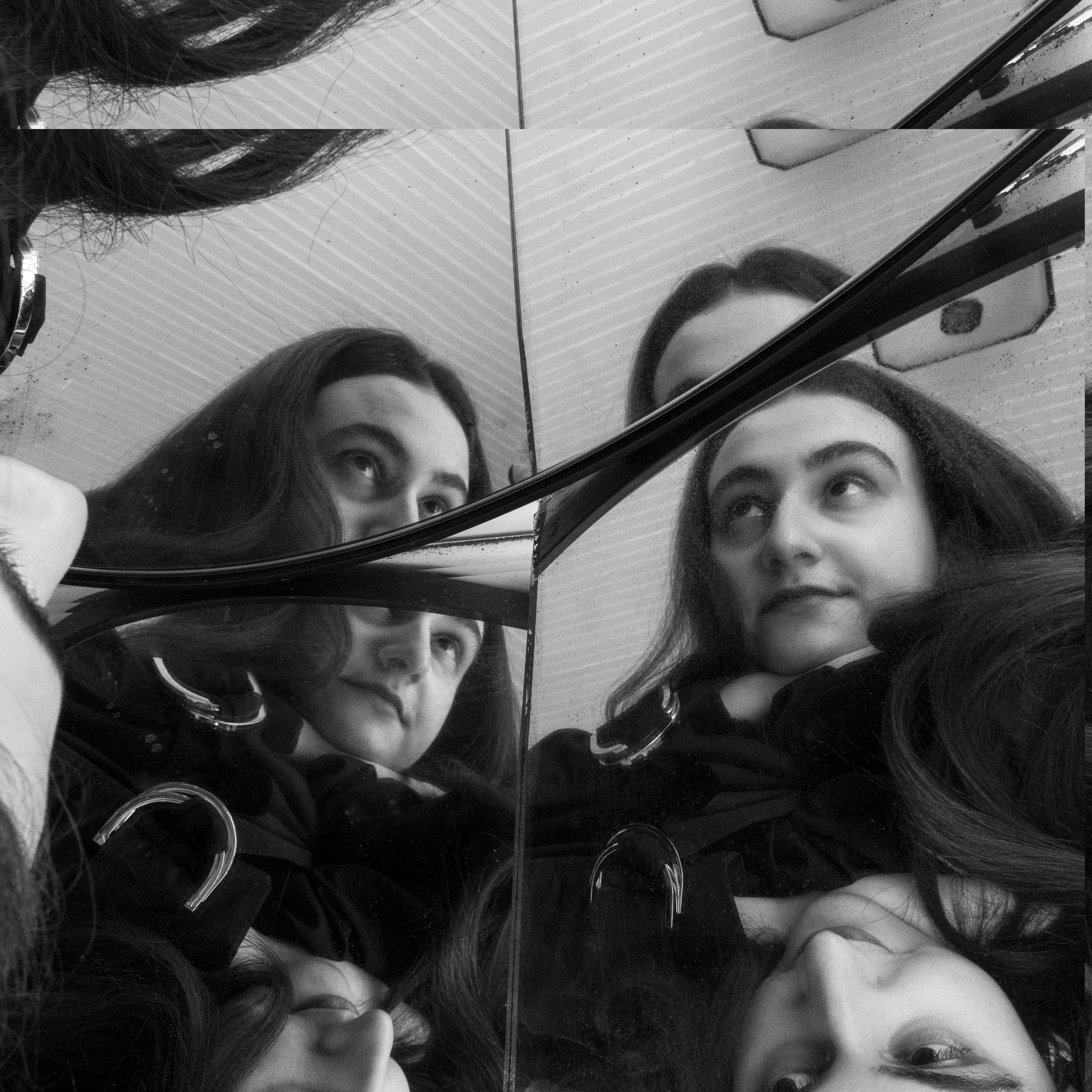
Coat by JW Anderson. Vintage shirt by Céline from the Albright Fashion Library. Earrings by Patricia Von Musulin.
Jamie Margolin Makes Her Next Move
Nineteen-year-old Jamie Margolin didn’t grow up wanting to become one of the world’s leading climate change activists. “I actually tried avoiding climate change at all costs,“ she says of her childhood. “Anytime I heard something on the news or the radio or NPR, it would just be so overwhelming and scary that I would actually turn it off and be like, ’I don’t want to hear about this,’ because it was just too scary.“ But by 2016, it was unavoidable. Raised in Seattle, Margolin started to see local marine life diminishing and wildfires ravaging the West Coast, and it became impossible to ignore the looming environmental shifts. She started volunteering at her local Democratic headquarters while still in high school as one of their youngest interns, hoping to inspire change at a political level. Still, after Donald Trump edged out a victory that November, she says she was forced to “get my head out of the little ostrich hole“ and confront the issues of environmental justice that political leaders were promising to ignore.
In response, Margolin co-founded Zero Hour, a youth-led initiative aimed at mobilizing and organizing her cohort, demanding accountability from world leaders, and raising awareness of climate change issues, before joining twelve other youths in suing the state of Washington for contributing to the climate crisis with irresponsible legislation and violating their generation’s constitutional rights to life, liberty, property, and equal protection by the law. One of Zero Hour’s most well-known actions was its role as a key organizer in the Youth Climate March. Thanks to the reach of social media, conversations about the school strike movement flourished, and in 2018, hundreds of thousands of students marched in hundreds of cities around the world to raise awareness of environmental issues and demand action from their leaders, spawning several more marches throughout the following year. “Without social media, Zero Hour would not be able to be where it is, and also, I don’t think the school strike movement would have taken off the way it has,“ Margolin notes. “The movement wouldn’t be as connected as it is today if it weren’t for social media, so I’m very grateful for it.“
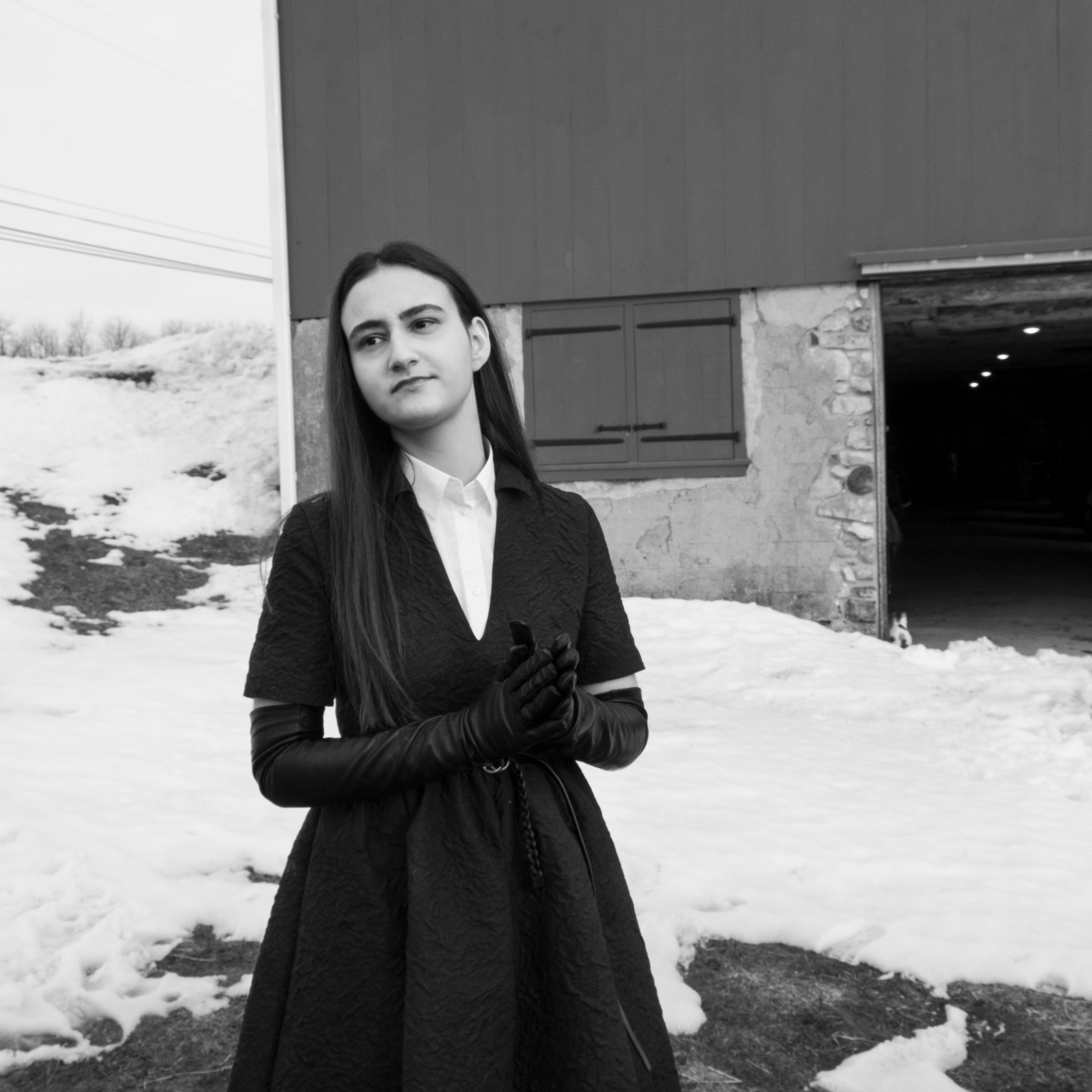
Dress and belt by Christian Dior. Shirt by Alaïa. Gloves by Carolina Amato.
All while she was still in high school, Margolin’s tireless efforts began to inspire other youth and attract the attention of the rest of the world, bringing more opportunities to share her message with a larger audience. From testifying in front of Congress alongside Greta Thunberg to being honored at the MTV EMA Awards for her work as an activist (never missing an opportunity, she ended up on several best-dressed lists for her statement makeup look with “You can’t drink oil“ written across her face), Margolin understood the privilege of recognition and poured even more of her energy into fighting for environmental justice. Recently, she published a book called Youth to Power: Your Voice and How to Use It to teach future generations all she has learned about mobilization. With titles like “Finding Your Why“ and “Making Your Activism Go Viral,“ each chapter shares accessible advice while also including an interview with another youth activist at the end. “Youth to Power is not a climate book, it’s an activism book,“ Margolin says. “This was a guidebook, which means it can’t just be coming from one person. I can’t speak for every movement. But in my work, I’ve made a lot of friends with people from many different movements and they have a lot of wisdom to share that I don’t have.“
One chapter, “Mental Health As an Activist,“ offers a candid look at some of the personal struggles Margolin has gone through as a result of her work. As someone open about her depression, anxiety, and OCD, she writes about her own experiences managing her mental health when the weight of the world is too much. “I struggle with burnout all the time, but the way I handle it is really investing and focusing on the other aspects of my life that are not my activism,“ she says. “I have so many more aspects to me as a person than trying to fight the climate crisis. I have different goals, dreams. I have other aspirations and things I would be doing if the climate crisis were not a thing. I feel like that’s important also, to do things that have nothing to do with the end of the world because no little girl is like, ’Oh, some time I hope to stop the end of the world.’ Like, what? That’s not something that you dream of. It’s just something that I have to do.“
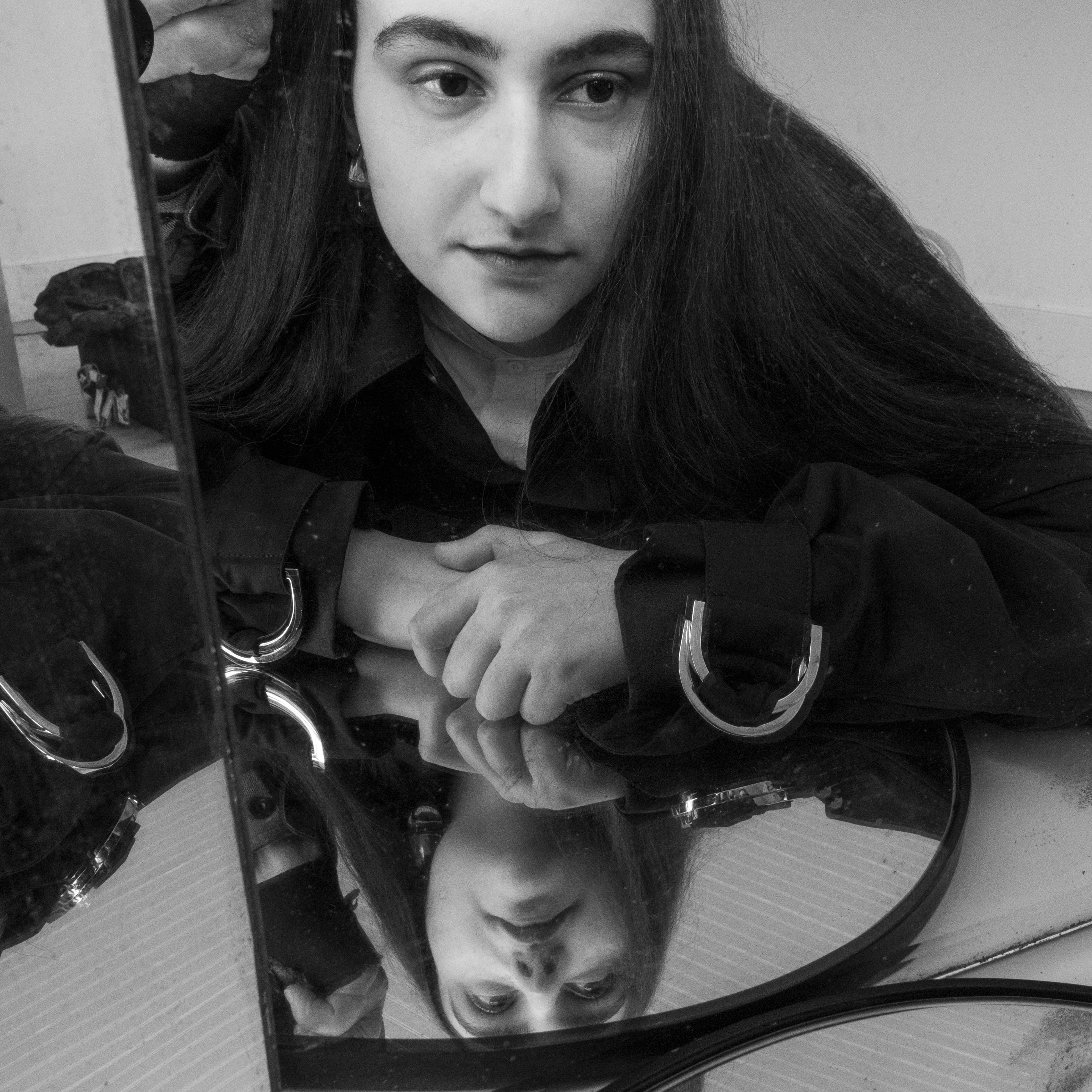
Coat by JW Anderson. Vintage shirt by Céline from the Albright Fashion Library. Earrings by Patricia Von Musulin.
This desire to expand other parts of herself caused Margolin to explore her creative side. When it was time to choose an undergraduate program, she says that, although she felt pressured to study political science, in the end, she realized that art was what made her happy. She shifted her applications to film schools and is currently enrolled at New York University. “The world is so dark. Entertainment helps people take a breath and escape for a little bit, and that’s how I get through this,“ she explains. “Movies and shows, I get very passionate about them because it’s a way to escape that. I want to create those movies and shows that mean so much to people, that help them get through the tough times, that help them to escape a bit.“ True to her character, Margolin doesn’t want to just make art for art’s sake and sees it as another opportunity for activism—as a member of the LGBTQ+ community, she’s hoping to make space in film for others like herself. “I want to create the representation for other little queer girls,“ she says, “so they don’t have to go through what I did and struggle as much as I did and feel as alone and wrong as I did. That’s really why I’m in film school.“
Beyond just creating opportunities for representation, Margolin sees film as a way to nudge the public into becoming more comfortable with LGBTQ+ rights. “It’s always the culture that has to shift, then enough people have to get mad, so the government can finally be like, ’Alright, fine, have your rights,’ you know?“ she says. “What shifts the culture? Media and pop culture influence.“ She recognizes the value of introducing LGBTQ+ characters into mainstream media as a way to normalize and humanize their stories for a broader audience. “That starts to make it more familiar, that starts to lessen bullying. That’s why I really want to get in there and make media, because culture shifts lead to legal shifts lead to actual political shifts,“ she says, “but the culture has to shift first.“
Margolin is beginning her foray into film with Art Majors, a web series she describes as “made for us, by us.“ Written and directed by Margolin, who also appears as one of the main characters, the series is about queer and femme-identifying first-year art students finding their way in New York City. “A lot of times in Hollywood, it’s straight people telling our stories, and that really messes things up,“ she says. “This is a web series that I want to provide for queer girls and queer femmes that grew up not really seeing themselves.“
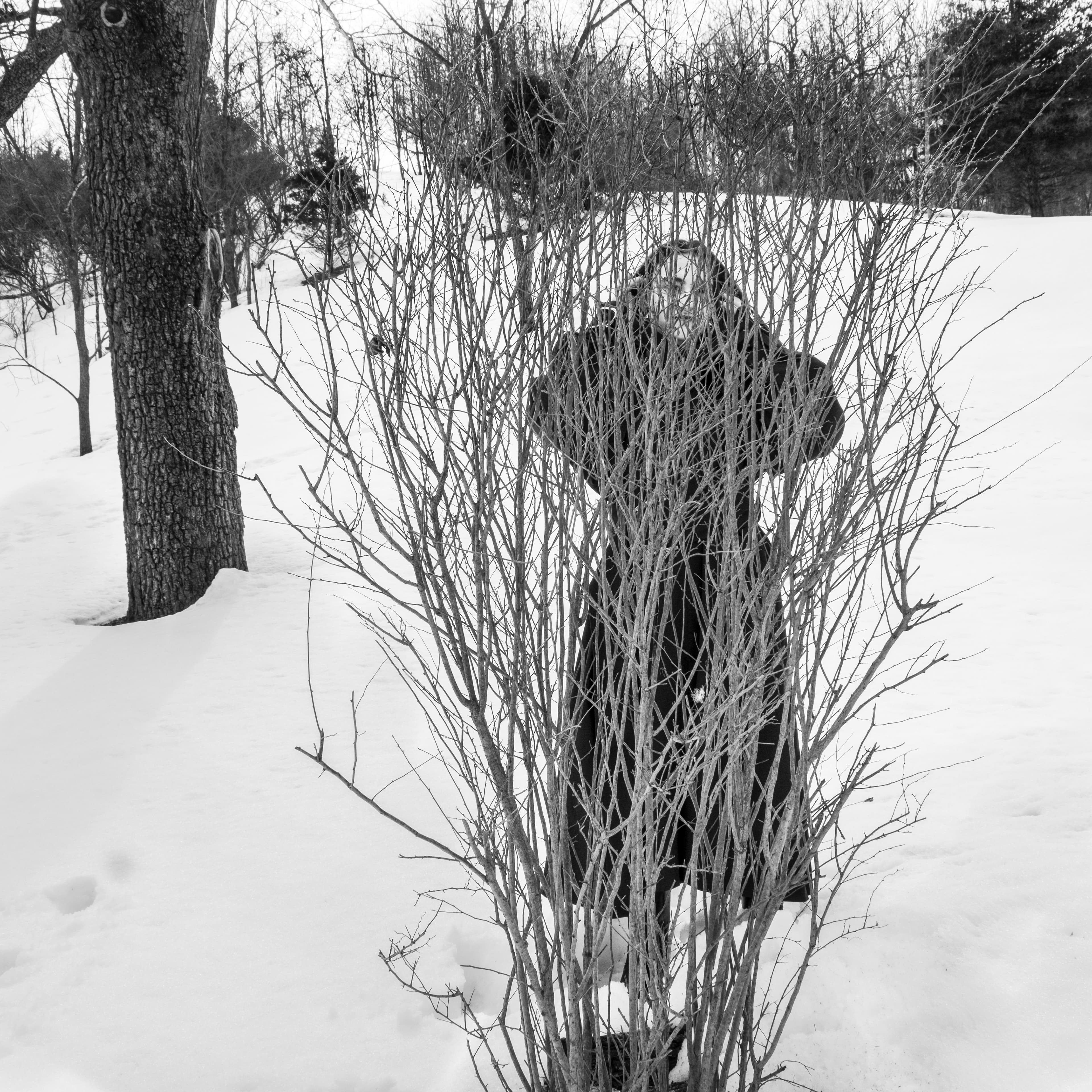
Coat by JW Anderson. Vintage shirt by Céline from the Albright Fashion Library. Pants by 3.1 Phillip Lim. Vintage boots by Jil Sander from the David Casavant Archive.
Although Margolin is exhilarated about her future as a filmmaker, she is quick to point out that even though that is her focus at present, she will never abandon her work on climate change. “To be clear, I’m not neglecting ’Jamie, the climate activist.’ I’m still very much a part of the movement and I’m still very much passionate about that,“ she says, “but it’s almost for my own sanity that I’m doing something that literally has nothing to do with climate change. To almost restore that aspect of my humanity that I feel sometimes gets taken away when I’m only just so focused on the end of the world all the time. Sometimes you want to create something beautiful that has nothing to do with the end of the world, and that’s okay. I will always be advocating for climate justice and I will always be creating art for my LGBTQ community. That will always one-hundred-percent be a part of who I am.“
With a constant onslaught of depressing news about the planet, it can often feel like it’s already too late to create meaningful change, but Margolin encourages others to remain optimistic and charged on the uphill fight. “What’s the other option? Laying down and accepting defeat?“ she asks incredulously. “I feel like climate defeatism is a very dark thing because then it’s like, ’Oh, we have no choice but to lay down and die.’ I see those articles and think, ’This really isn’t helping anyone.’ I don’t find it to be helpful. I just tell people to keep taking action, keep doing what they can, keep organizing, keep mobilizing, and don’t give up hope. Obviously, things can be grim and it can be rough, but I think we need to keep our heads up and keep trying to take the best action that we can.“
Read this story and many more in print by ordering our inaugural issue here, with all net proceeds from Margolin’s cover going to Consejo Regional Indígena del Cauca - Colombia.
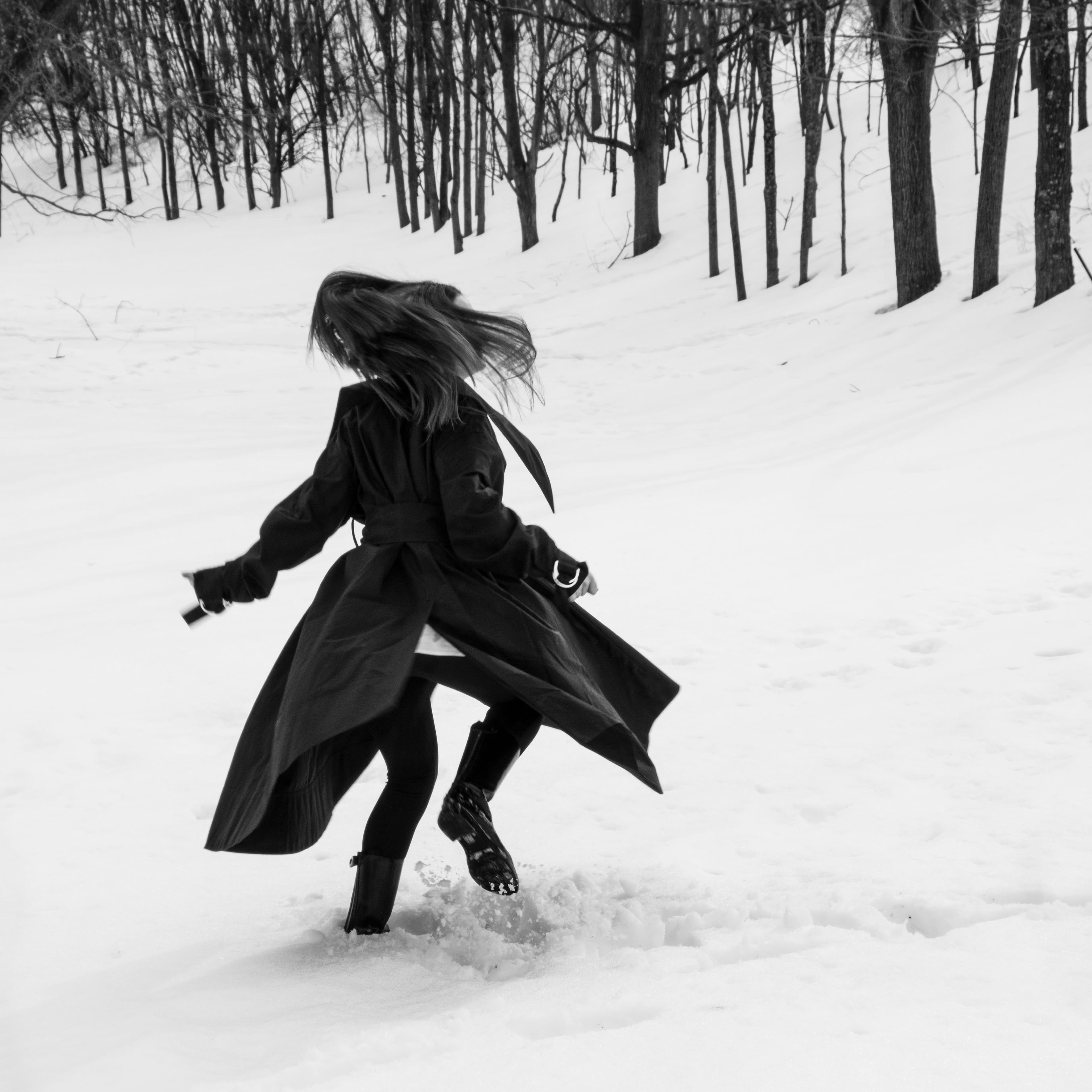
Coat by JW Anderson. Vintage shirt by Céline from the Albright Fashion Library. Pants by 3.1 Phillip Lim. Vintage boots by Jil Sander from the David Casavant Archive.
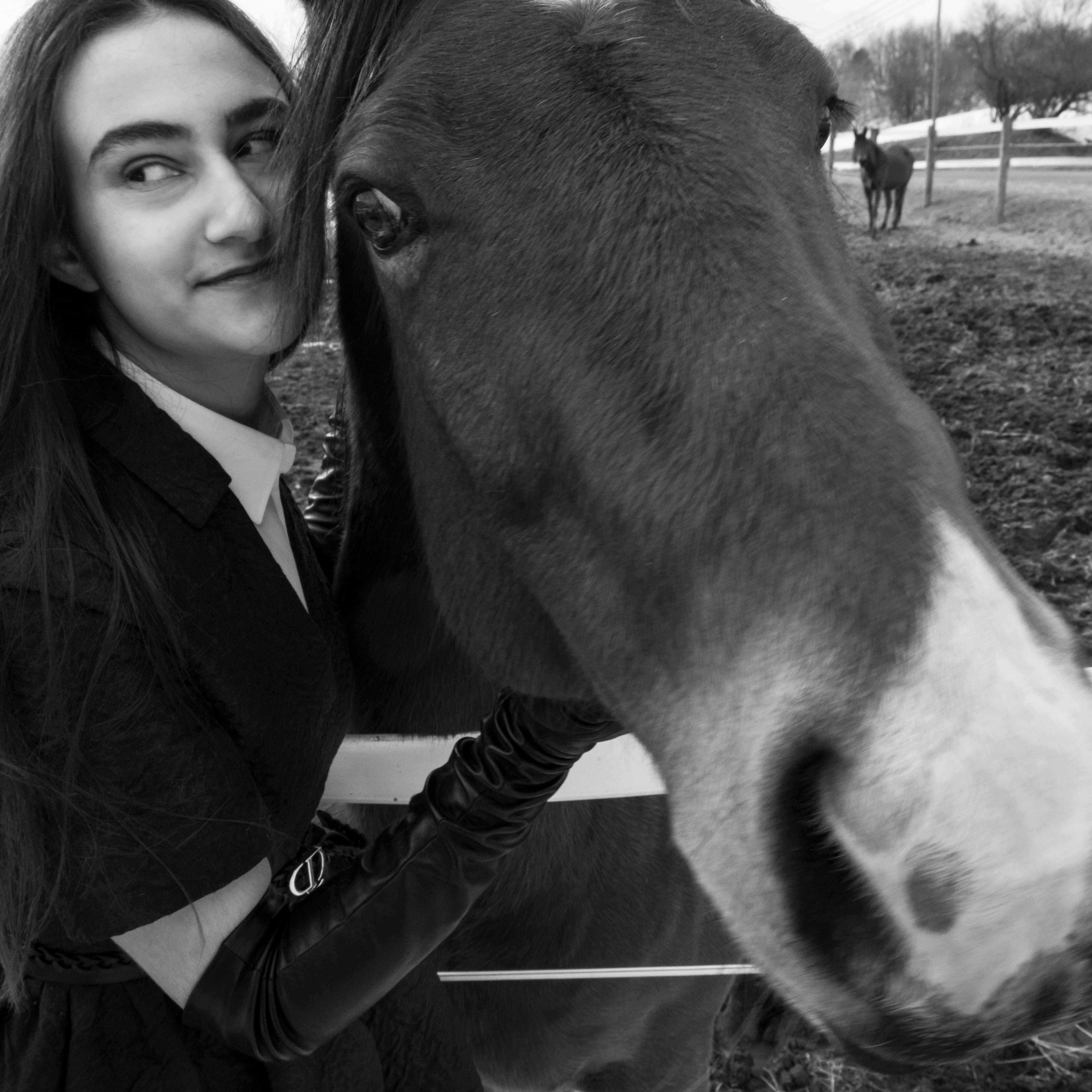
Dress and belt by Christian Dior. Shirt by Alaïa. Gloves by Carolina Amato.
As a nonprofit arts and culture publication dedicated to educating, inspiring, and uplifting creatives, Cero Magazine depends on your donations to create stories like these. Please support our work here.






